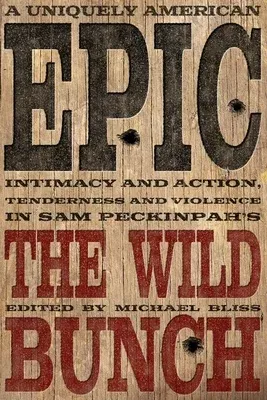A Uniquely American Epic: Intimacy and Action, Tenderness and Violence in Sam Peckinpah's the Wild BunchHardcover, 10 December 2019

Qty
1
Turbo
Ships in 2 - 3 days
In Stock
Free Delivery
Cash on Delivery
15 Days
Free Returns
Secure Checkout

Part of Series
Screen Classics
Print Length
184 pages
Language
English
Publisher
University Press of Kentucky
Date Published
10 Dec 2019
ISBN-10
0813178142
ISBN-13
9780813178141
Description
Product Details
Book Format:
Hardcover
Country of Origin:
US
Date Published:
10 December 2019
Dimensions:
22.86 x
15.49 x
1.78 cm
ISBN-10:
0813178142
ISBN-13:
9780813178141
Language:
English
Location:
Lexington
Pages:
184
Publisher:
Series:
Weight:
408.23 gm